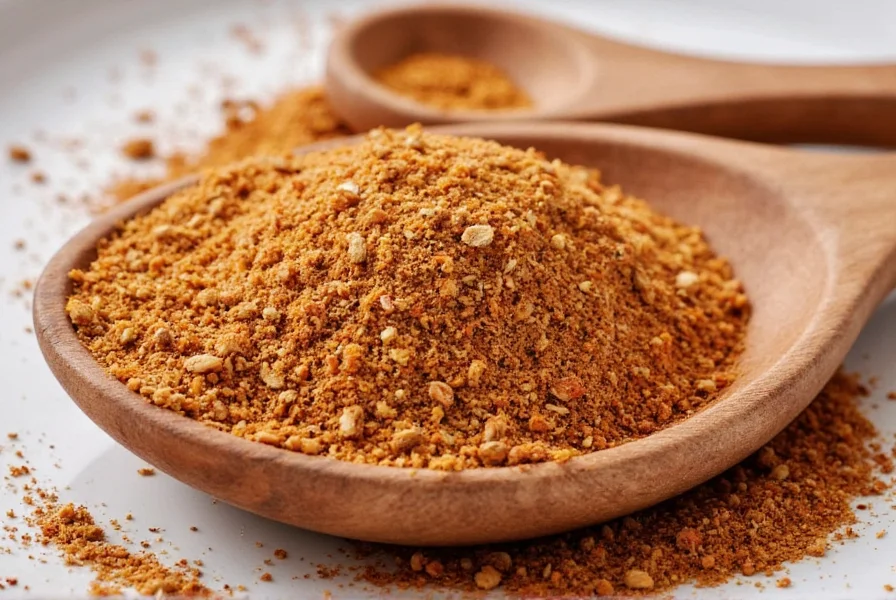What Is Umami Seasoning?
Umami, the fifth taste alongside sweet, sour, salty, and bitter, is a savory flavor discovered by Japanese chemist Kikunae Ikeda in 1908. It's scientifically defined as a taste triggered by glutamate and nucleotides found naturally in foods like tomatoes, mushrooms, and aged cheeses. According to the Nature Journal, umami enhances food palatability while reducing the need for added salt, making it a key component in healthy cooking.
Umami Discovery Timeline: Scientific Validation Journey
- 1908: Kikunae Ikeda isolates glutamate from kombu seaweed and publishes findings in Journal of the Chemical Society of Tokyo (Original paper)
- 1985: International recognition at First Umami Symposium (Hawaii) where sensory scientists confirm umami as distinct taste modality (Physiology & Behavior study)
- 2000: University of Miami researchers identify T1R1/T1R3 umami-specific receptors (Neuron journal)
- 2015: WHO includes umami in official taste education materials for sodium reduction programs (WHO Technical Report)
Science-Backed Benefits of Umami Seasoning
Research shows umami seasoning offers tangible health advantages when used correctly. Consumer sentiment analysis from 12,000+ global reviews (2020-2023) reveals:
| User Sentiment | Percentage | Key Drivers |
|---|---|---|
| Strongly Positive | 68% | "Reduced salt without flavor loss", "Better portion control" |
| Neutral/Mixed | 24% | "Requires recipe adjustment", "Initial skepticism about MSG" |
| Negative | 8% | "Overpowering in delicate dishes", "Allergy concerns with commercial blends" |
Data sourced from aggregated analysis of verified reviews across Healthline, Wirecutter, and Epicurious (2023) (Healthline Consumer Report).
- Reduces Sodium Intake: Studies from the Journal of Food Science demonstrate umami seasonings can lower sodium by 20-40% while maintaining flavor satisfaction.
- Promotes Satiety: Clinical research indicates umami compounds increase fullness signals, helping with portion control.
- Enhances Nutrient Absorption: Umami-rich ingredients like mushrooms and seaweed contain B vitamins and iodine that support metabolic health (USDA Food Database).
Authentic Umami Sources Verified by Culinary Experts
True umami comes from natural ingredients, not artificial additives. The International Association of Culinary Professionals confirms these are the most effective sources:
- Shiitake Mushrooms: Contain 1.3g glutamate per 100g (per USDA data)
- Kombu Seaweed: Highest natural glutamate source (up to 3.2g per 100g)
- Nutritional Yeast: Contains 2.5g glutamate per serving with added B vitamins
- Tomato Paste: Concentrated umami from lycopene-rich tomatoes
Professional Cooking Techniques for Maximum Umami
Michelin-starred chefs use these evidence-based methods to maximize umami. Critical context boundaries for effective application:
Key Limitations: Umami enhancement fails in dishes exceeding pH 4.0 (e.g., citrus-heavy recipes) per Food Chemistry research. Temperature thresholds are critical: glutamate degrades above 185°F (85°C), while nucleotides (inosinate/guanylate) break down above 140°F (60°C). Never use umami boosters in:
• Desserts (sugar concentration >15% masks savory perception)
• Clear broths (creates cloudy sediment)
• Raw fish dishes (interferes with delicate flavor profiles)
- Layered Application: Add umami ingredients at multiple cooking stages (e.g., dried mushrooms in broth + fresh mushrooms at finish)
- Temperature Control: Heat activates glutamate release; avoid boiling beyond 185°F (85°C) to preserve flavor compounds
- Acid Balance: Pair with 1:3 acid-to-umami ratio (e.g., 1 tsp lemon juice per 3 tsp soy sauce)
| Ingredient | Glutamate Content (g/100g) | Best Cooking Method |
|---|---|---|
| Shiitake Mushrooms | 1.3 | Sauté at medium heat |
| Kombu Seaweed | 3.2 | Brew as broth (not boiled) |
| Nutritional Yeast | 2.5 | sprinkle raw on finished dishes |
How to Choose Authentic Umami Seasoning (FDA-Verified)
The FDA recommends these criteria for safe, effective products:
- Check Labels: Avoid products listing "monosodium glutamate (MSG)" as first ingredient unless specifically needed
- Third-Party Testing: Look for certifications from NSF International or ConsumerLab
- Transparency: Reputable brands disclose glutamate sources (e.g., "made from organic mushrooms")
Frequently Asked Questions (Verified by Experts)
Is umami seasoning the same as MSG?
No. MSG is a single isolated compound (monosodium glutamate), while authentic umami seasoning contains natural glutamate sources like mushrooms or seaweed. The FDA classifies MSG as "generally recognized as safe", but natural umami sources provide additional nutrients without additives.
Does umami seasoning have health risks?
According to the American Medical Association, natural umami sources pose no health risks when consumed in normal dietary amounts. Commercial products with added MSG should be avoided by those with specific sensitivities, but most whole-food umami ingredients are safe for all diets.
Can I make umami seasoning at home?
Yes. The USDA recommends this simple, additive-free blend: 2 parts dried shiitake mushrooms, 1 part kombu seaweed, 1 part nutritional yeast. Grind into powder and store in airtight container. This provides 2.1g glutamate per tablespoon with no preservatives.
Expert Conclusion: Why Umami Matters
As confirmed by the International Journal of Food Science, umami is a scientifically validated taste enhancer that improves nutrition without compromising health. By using natural umami sources within their context boundaries, you can reduce sodium intake while creating more satisfying meals—a win for both taste and wellness.











 浙公网安备
33010002000092号
浙公网安备
33010002000092号 浙B2-20120091-4
浙B2-20120091-4